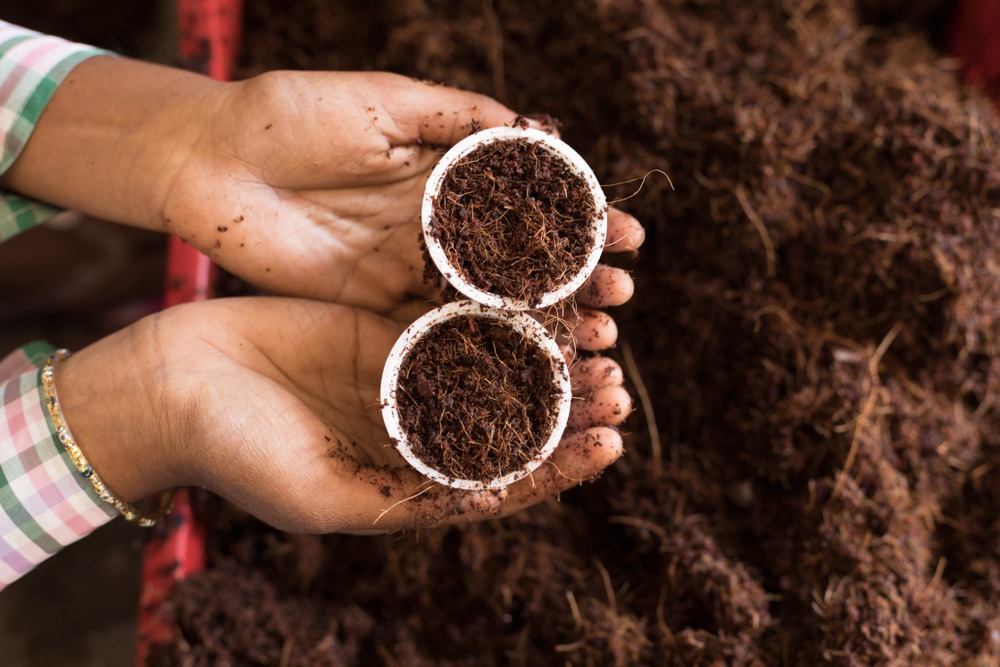Editor’s Note: Sourajit Aiyer works with Sustainable India Finance Facility, a partnership of UN Environment, BNP Paribas & ICRAF. Previously, he worked in the private-sector in financial services, business planning, institutional investor relations & business research. He has written three books. Here he writes about a hopeful trend among Indian farmers.
The world knows a high-growth, emerging market like India for its technology sector. But the latest influx of entrepreneurship seems to be occurring in agriculture.
A number of Indian agritech startups are making headlines with their transformative technologies, but the Zero Budget Natural Farming (ZBNF) project in the southern Indian province of Andhra Pradesh is also making waves in the once-ignored industry.
ZBNF is an agroecology method that advocates ways of doing agriculture in closer harmony with nature. It aims to regenerate the natural cycle of nutrients in the soil by enhancing the activities of beneficial microorganisms by applying a natural microbial mix to the soil instead of chemical fertilisers, mulching the soil to conserve soil moisture, and planting a variety of crops to improve the soil’s nutrient balance and reduce the farmers’ economic risk.
For the farmer, these microbial bio-inoculants are cheaper than chemical fertilizers, resulting in an improvement in their investment and net income. ZBNF has demonstrated an improvement in the output of all the major crop types. Propagated by renowned agriculturist Dr Subhash Palekar, Andhra Pradesh has adopted ZBNF as a state policy and aims to convert all 6 million farmers from chemical-based farming to ZBNF farming by 2025.
Currently funded by Government of India’s schemes and Azim Premji Philanthropy, the provincial government’s plan to scale-out this ZBNF programme is also being supported by Sustainable India Finance Facility, a partnership of UN Environment, BNP Paribas and World Agroforestry Centre.
Since agriculture still supports a large chunk of the labour force in large emerging markets, the success of the ZBNF project may be something that other nations could look to emulate in order to revitalize their agriculture sectors.
But how is the ZBNF project creating a new generation of entrepreneurs in India? This article traces two agripreneurs, who made their plans to realize their entrepreneurial passions with Andhra Pradesh’s ZBNF project.
The story of two agripreneurs
Three years ago, Parthasaradhi Nara was working in Bengaluru, India’s software capital. Despite working with leading brands, he always nursed a passion to revive the fortunes of his family’s farm in Andhra Pradesh’s Anantapur district. But the memories of his parents toiling under the economic strains of chemical farming kept him unsure whether to pursue it. Around that time, Shivaparvathi Nalluri, a housewife in Andhra Pradesh’s Ongole town, was also feeling the strains of socioeconomic insecurities common in most Indian middle-class families. She too had always nursed a passion to do something on her own, but was unsure how to go about it.
Around that time, the buzz about the ZBNF project reached them. Both Parthasaradhi and Shivaparvathi were quick to realize that ZBNF offered them a possible plan through which to pursue their passions. Plan combined with passion to create purpose, and both struck the iron while hot! Parthasaradhi moved to Anantapur as a ZBNF farmer-entrepreneur. Shivaparvathi went on to hone her skills with an entrepreneurship course and became an agri-products entrepreneur.
Parthasaradhi started small by adopting ZBNF practices on his family’s 90-acre land in stages. This made his transition easier, and helped him to learn by observing which helped him during subsequent conversions of his land. It also gave his neighbours an opportunity to compare the old and new, thus enticing more farmers to convert. Over time, he converted half his land to ZBNF, and is now what RySS, the Andhra Pradesh provincial government agency implementing the project, describes as a Seed-to-Seed farmer, i.e. using the seeds from the previous harvest for the next season. He adopted ZBNF practices for cereals, pulses and horticulture. A key practice for him was intercropping, as it helped achieve a diverse output and reduce the risk from monocropping. The results are now showing, as he reaped a bumper harvest of fruits. The economics of farming are now in his favour, say the cost of cultivation per acre for banana halved. Higher realisation from more output combined with lower investment and costs improved his net income. That has helped revive his farm.
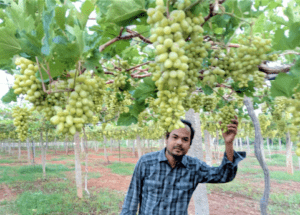
His entrepreneurial drive did not end there! He established market linkages, thus creating the demand for his supply. His initiative, Anantha Naturals Producers, facilitated end-to-end integration of the supply chain of crops. Having lived in a large city, he was aware of the growing demand for organic food. He started sampling initiatives by visiting offices and residential complexes, eventually expanding through stores. Importantly, he created this last-mile-connect not only for himself, but for several farmers, so that the producer base could expand. He used Whatsapp so the farmers could share pictures of their produce with customers. Each week, he engages with over 40 farmers to estimate the produce, makes an inventory and shares it with customers by Monday. The next two days go in procuring orders. He arranges the logistics to pick up the produce, collects it at the cities by Friday and delivers to clients over the weekend. He has created a network of 60 bulk buyers, comprising of 30 retailers, 10 complexes and 5 wholesalers and over 10,000 individuals. He also dealt with the water scarcity in drought-prone Anantapur through rainwater harvesting, thus creating an enabling ecosystem.
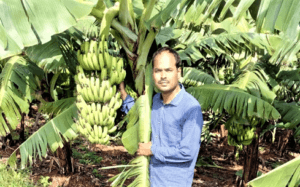
Shivaparvathi established Gramabharathi, which aimed to make available organic food from over 80 ZBNF farmers to urban consumers. Her purpose extended to knowledge sharing by making people aware about how to cook food without losing its inherent nutrition, something many urban youngsters are not fully adept in today. Her driving force was the belief that ZBNF food should be a must-have for all people, especially the economically-weaker sections.
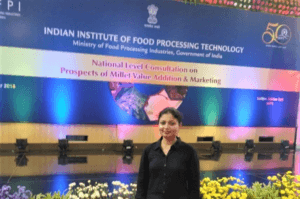
Laying the supply logistics was expensive in the beginning. But a lesson she learnt early was that only action speaks in business, not promises. She left the comfort-zone of her town and went into the fields across all the districts to build her networking with farmers and farmer-groups. The farmers’ platform created by RySS supported her further. All this helped her build her supplier portfolio, thus making her business more volume-driven. Today, her enterprise has a baking unit focused on millet and mixed-grains. She sources grains and manufactures biscuits, breads, buns and cakes. She processes pulses and oils using ‘chakkis’ and oil extractors, and deals in fruits, vegetables, rice, jaggery, etc. She is moving up the value-chain with organic sweets and snacks, to meet the demand from the evolving consumer tastes.
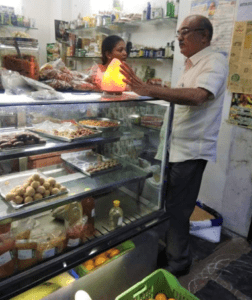
Going forward, Parthasaradhi plans to expand his market linkage by using teams and technology and hopes to expand the farmers’ margin. Shivaparvathi’s mantra has been ‘sky is the limit’ and she hopes to expand her sales network even further. She attends industry events for networking. Given the immense opportunities that the ZBNF project offers across marketing, branding, processing, etc. both are confident that it will inspire more entrepreneurs. The revival of the rural economy itself is an opportunity for entrepreneurs, not just in irrigated/rainfed areas but also in dry areas since the ZBNF project is successfully executing a dry-sowing experiment.

